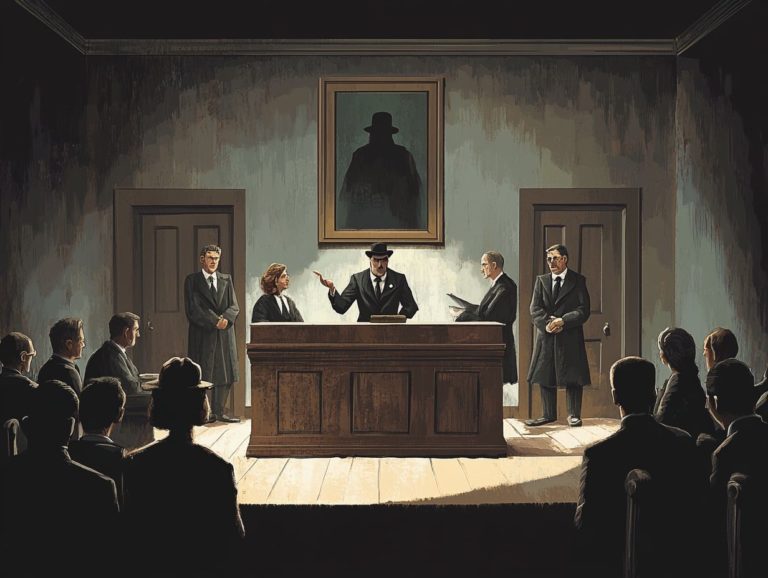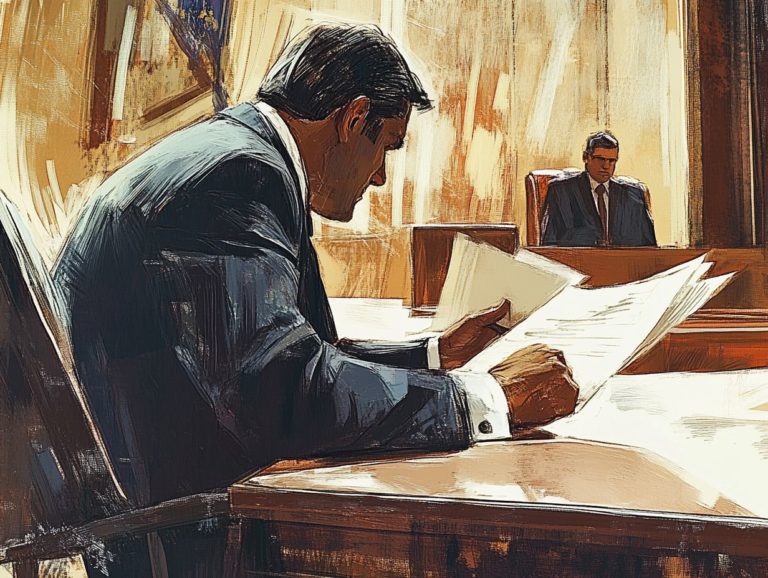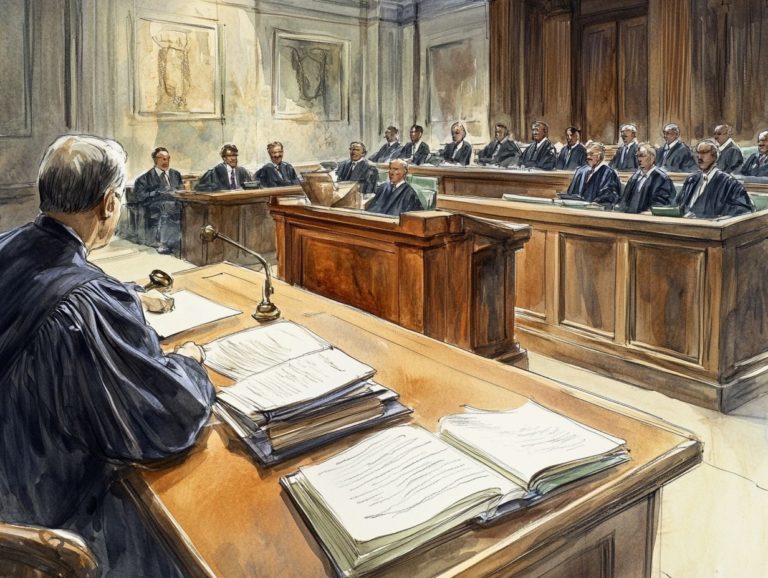How to Counteract Prosecutorial Misconduct
Prosecutorial misconduct is a major issue that weakens the legal system.
Its consequences range from wrongful convictions to mishandled evidence, harming defendants and the justice system.
We will explore what prosecutorial misconduct is and its impact on justice.
Join us as we uncover notorious cases that have sparked controversy and discuss the need for reform.
Contents
Key Takeaways:
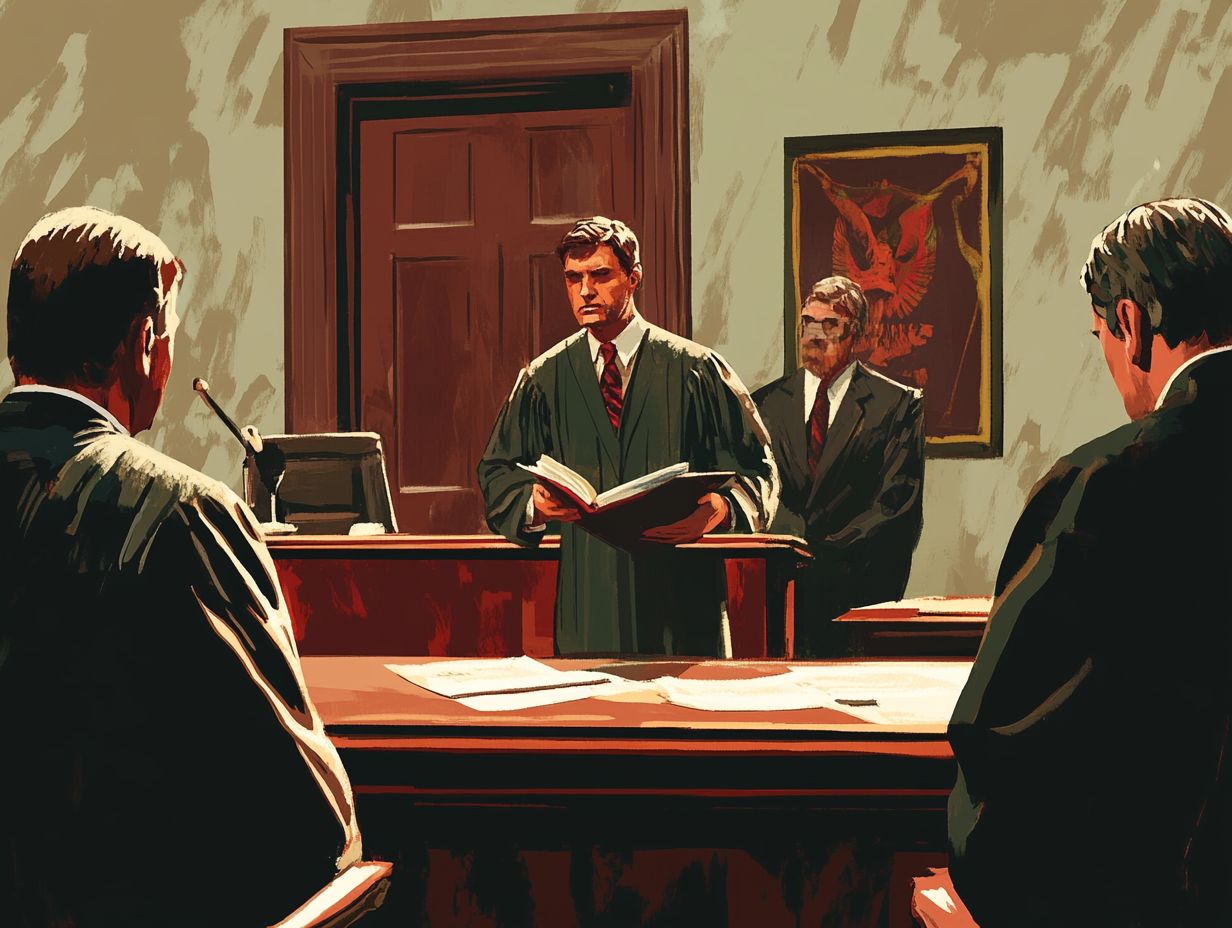
Prosecutorial misconduct can greatly hurt defendants and the entire system.
Notable cases highlight the urgent need for measures to prevent such misconduct.
We must implement strategies to uphold ethical practices in criminal justice.
Understanding Prosecutorial Misconduct
Understanding prosecutorial misconduct is essential to grasp its impact on the justice system.
When prosecutors violate ethical standards, it can lead to wrongful convictions and a loss of public trust.
This issue often arises from a culture that values conviction rates over upholding the law.
Such misconduct creates challenges, including immunity for prosecutors and failures in evidence disclosure.
Defining the Issue and Its Impact
Prosecutorial misconduct involves ethical breaches that may lead to wrongful convictions.
For example, Brady violations occur when prosecutors fail to disclose evidence that could help the defense.
The concealment of evidence is a serious act that can change trial outcomes.
High-profile cases of misconduct can severely damage public confidence in justice.
Examples of Prosecutorial Misconduct
Studying examples of prosecutorial misconduct helps us understand the impact of ethical breaches.
Landmark cases like Brady v. Maryland set important precedents for evidence disclosure.
Famous Cases and Controversies
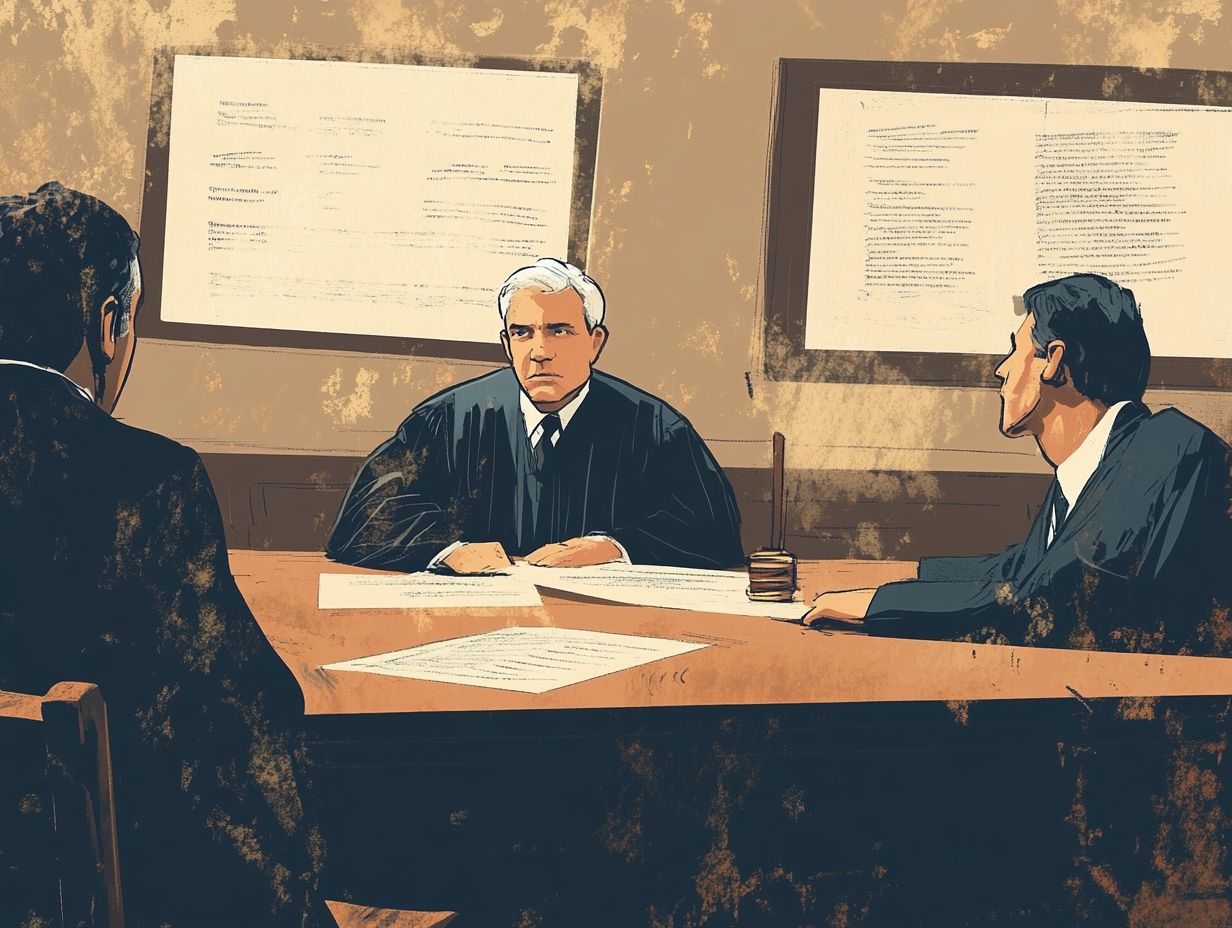
Cases involving Dewayne Brown and Stanley Mozee show the serious injustices of prosecutorial misconduct.
These examples remind us of the dangers of unchecked power in the prosecutorial system.
Figures like Harry Connick and Jim Letten highlight significant systemic failures in their offices.
Organizations like the Innocence Project play a vital role in exonerating the wrongfully convicted.
They advocate for reforms to restore integrity and accountability in our legal system.
Consequences of Prosecutorial Misconduct
Prosecutorial misconduct has serious ramifications. It impacts defendants and undermines the justice system’s integrity.
Such misconduct can lead to wrongful convictions, shaking the very foundation of legal standards. This raises profound questions about fairness and accountability.
Effects on Defendants and the Justice System
The impact of prosecutorial misconduct on defendants can be devastating. Wrongful convictions disrupt lives and challenge the integrity of the judicial system.
These wrongful convictions affect society broadly. They erode trust in legal institutions and deepen societal inequalities.
Those ensnared in wrongful convictions must deal with emotional turmoil, financial devastation, and a profound loss of personal freedom. Meanwhile, their families carry the heavy burden of these injustices.
Defense attorneys serve as essential guardians of the accused’s rights. They demand accountability when misconduct arises and advocate for reforms that enhance transparency within the system.
Efforts to confront these issues have sparked initiatives aimed at holding prosecutors accountable. This includes establishing prosecutorial oversight committees and promoting stricter ethical guidelines.
Across various jurisdictions, there is a growing trend to prioritize innocence projects. These projects enable the reexamination of dubious convictions. This movement offers hope to the wrongfully accused and drives essential changes in the legal framework.
Ways to Counteract Prosecutorial Misconduct
We must urgently counter prosecutorial misconduct with a comprehensive strategy. This strategy should blend legal actions, systemic reforms, and rigorous measures to ensure accountability.
This multifaceted approach is essential for upholding ethical standards within the justice system.
Legal Actions and Reforms
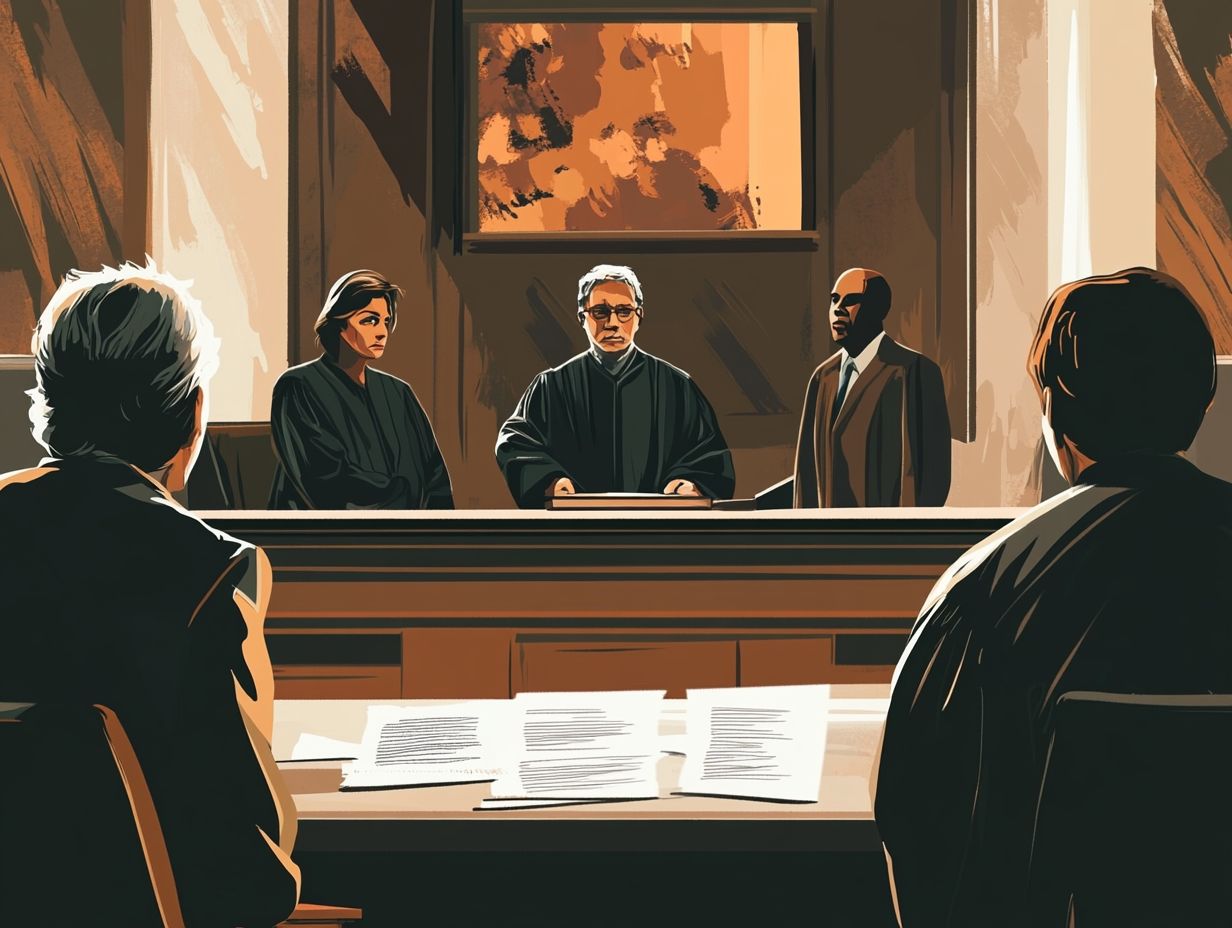
Legal actions and reforms are crucial for tackling prosecutorial misconduct. They pave the way for civil lawsuits and establish clearer standards for accountability within the judicial system.
You might explore a range of legal options:
- Seek damages for wrongful convictions.
- Initiate disciplinary measures against unethical prosecutors.
Proposals like mandatory training for prosecutors on ethical practices and the creation of independent review boards can be instrumental in curbing future misconduct.
Conducting misconduct surveys can significantly help pinpoint prevalent issues within the prosecutorial system. This ultimately guides more effective reform strategies.
By illuminating systemic problems, these surveys can cultivate a culture of accountability. They enhance transparency, ensuring that ethical breaches are thoroughly addressed.
Preventing Prosecutorial Misconduct
Preventing prosecutorial misconduct requires comprehensive strategies. These strategies should foster ethical conduct, ensure accountability, and promote transparency within the criminal justice system.
By prioritizing these principles, we can help create an environment where integrity prevails and justice is consistently upheld.
Strategies for Avoiding Misconduct
Effective strategies for avoiding prosecutorial misconduct begin with fostering ethical conduct. We need accountability measures that emphasize discovery obligations and judicial oversight.
By introducing enhanced training programs for prosecutors, the legal system can ensure they fully grasp their ethical responsibilities and the consequences of their actions.
Clearer discovery obligations promote transparency. They pave the way for just outcomes by compelling prosecutors to share evidence and relevant information with the defense.
Establishing reliable systems for reporting unethical behavior gives the power to individuals within the legal framework. They can voice their concerns without fear of retaliation.
Upholding high standards in the prosecutorial profession is essential. This preserves the integrity of the justice system and fosters public trust and confidence in legal proceedings.
The Importance of Addressing Prosecutorial Misconduct
Addressing prosecutorial misconduct is essential for restoring public trust in the criminal justice system. It ensures that conviction outcomes reflect both legal standards and ethical practices.
When ethical breaches occur, they can undermine the foundation of justice. This can lead to a disillusioned public questioning the legitimacy of legal outcomes.
The intricate relationship between misconduct and public perception highlights the need for reform. Maintaining integrity within the legal framework directly influences societal confidence.
Tackling these issues directly opens the door to real change! This approach strengthens community relationships with law enforcement and judicial institutions, fostering a trustworthy environment for all.
Frequently Asked Questions
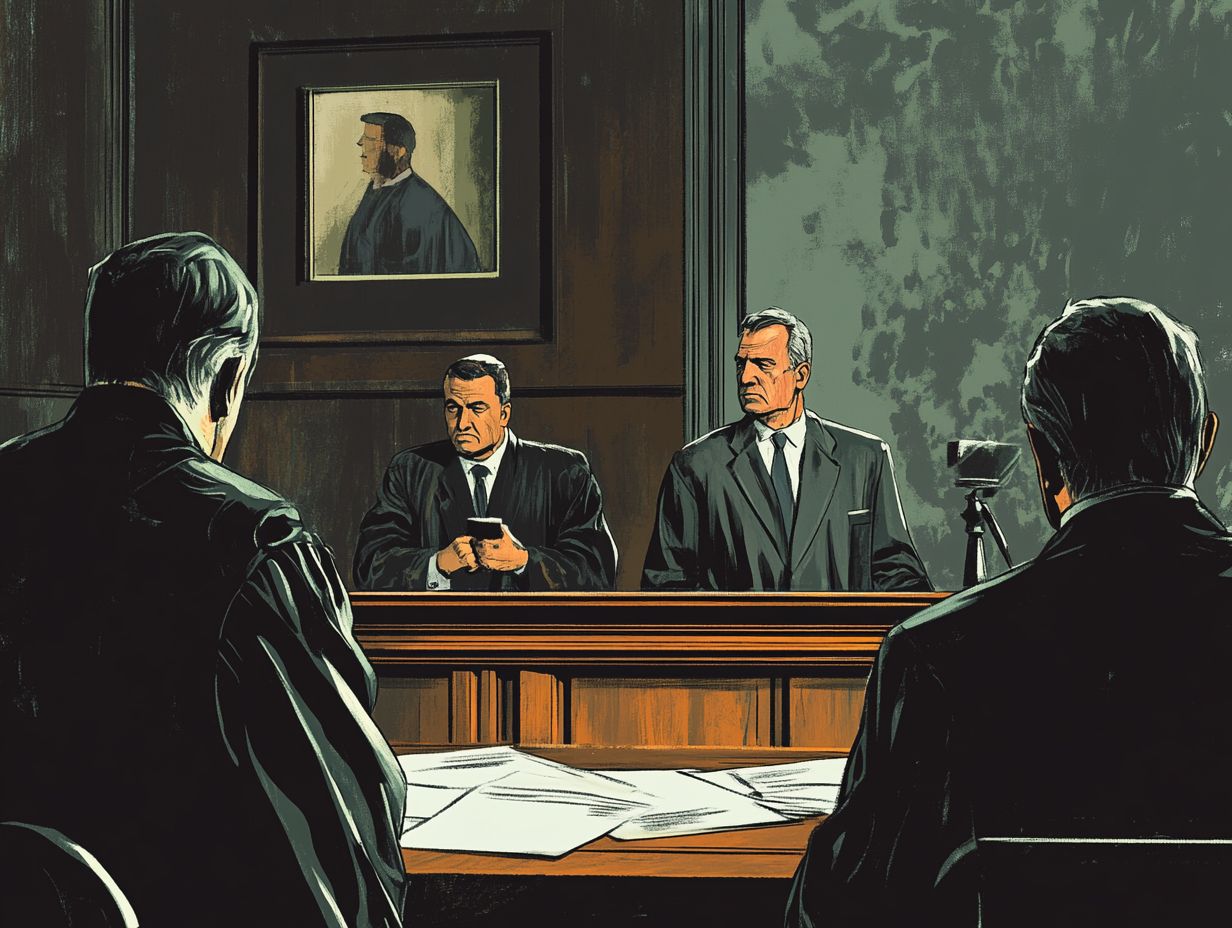
What is prosecutorial misconduct?
Prosecutorial misconduct means a prosecutor behaves unethically or illegally during a criminal case. This includes withholding evidence, making false statements, or using discriminatory tactics.
How common is prosecutorial misconduct?
Prosecutorial misconduct happens more often than many realize. Studies reveal it occurs in a significant number of cases, though it s often difficult to detect and prove.
What are the consequences of prosecutorial misconduct?
The consequences can be severe and far-reaching. They can result in wrongful convictions, violations of defendants’ rights, and a loss of trust in the criminal justice system.
How can I counteract prosecutorial misconduct?
You can take a few steps to counteract prosecutorial misconduct. First, report any instances of misconduct to the appropriate authorities. Work with a skilled defense attorney who can challenge the misconduct in court.
Is there any recourse for victims of prosecutorial misconduct?
Yes! If you ve been affected, you can file a complaint with the state bar association or pursue legal action against the prosecutor. You may also be entitled to compensation for damages caused by the misconduct.
How can I avoid being a victim of prosecutorial misconduct?
To avoid being a victim, know your rights and stay informed about the legal process. If you believe your rights have been violated, speak up and seek legal help. Remember, you are innocent until proven guilty, and it is the prosecutor’s burden to prove your guilt beyond a reasonable doubt.
If you see misconduct, act now! Report it to the authorities or consult with a defense attorney.

